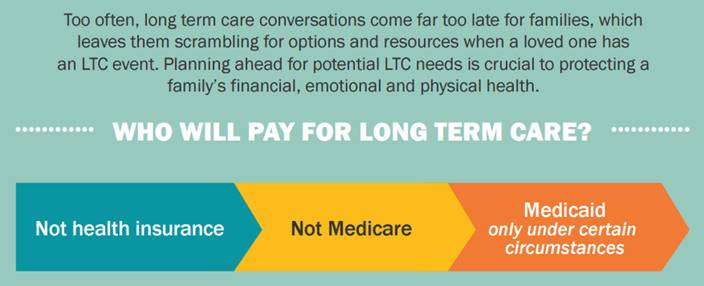
Home health care medicaid is a government-funded program that covers millions of Americans including the elderly, children, and people with low income. It covers both short-term rehabilitation and nursing at home, as well as services to help people stay at home for a long time. State to state, coverage, service, qualifications and access are all different.
Does Medicare Cover Home Health Care?
Home health can be delivered by a wide range of professionals including licensed clinical workers, nurses, and certified home-health aides. These services are covered by Medicare if they are deemed necessary by a physician or home health agency.
Do you Need a Caregiver in Your Home?
Home care can be a great option for seniors that want to live in their homes for as long a possible. But finding the right caregiver is not always easy. Finding the perfect match is vital. A variety of strategies are available to assist you in finding the right person to care for your loved ones' needs.

How Can I Find Caregivers In My Community?
Use the search engines offered by Medicare, or the U.S. Administration on Aging in order to find a caregiver who can best meet the needs of your loved one.
By using these tools, you can narrow your search down by type of service, care provided, etc. The search tool will provide a listing of agencies who accept Medicare, U.S. Administration on Aging and any other program that provides care.
How much does home health care cost?
The cost of home healthcare is largely determined by your age, how much care you need, and what type of services you need. The average cost of home healthcare is $3,600 per monthly.
What Are the Benefits of Medicare and Medicaid?
Medicare and Medicaid provide the two main insurance options available to seniors who require in-home care. They both offer various benefits, and beneficiaries should check out both to see which one works best for them.

What are the eligibility criteria for Medicare and Medicaid
Medicare is only available to patients who have spent at least 3 days in hospital. Original Medicare (Part A) is an insurance plan that pays for medically-necessary care in a hospital or nursing home.
A patient can receive home health care services for 100 days following their discharge from the hospital or nursing facility. If a patient requires home health care prior to the 100-day limit, they may still be able to receive it under Original Medicare or Part B.
Does Medicare pay for caregivers in your home?
Home health aides can be family members or friends. This is often referred to as "consumer directed care" or a "self-directed care program." Consumer directed care allows you to hire the home health aide of your choice, and pays for it directly through your state's home care program.
FAQ
What is the best way to get free coverage for my area's health?
If you are eligible, you can apply for free insurance. If you are eligible, you might be eligible to Medicaid, Medicare or CHIP, Children's Health Insurance Program(CHIP), Tricare benefits, VA benefits and Federal Employee Health Benefitss (FEHB), military benefits, Indian Health Service benefits (IHS), or another program.
What are my options for immunizations in the United States?
Immunization is the process of stimulating an immune response to a vaccine. The body responds to the vaccine by making antibodies (immunoglobulins) that protect against infection.
What are medical networks?
Medical systems are designed for people to live longer and healthier lives. They make sure that patients receive the best possible care whenever they require it.
They ensure the best possible treatment at the right time. They give doctors the information they need to provide the best advice for each patient.
Statistics
- Healthcare Occupations PRINTER-FRIENDLY Employment in healthcare occupations is projected to grow 16 percent from 2020 to 2030, much faster than the average for all occupations, adding about 2.6 million new jobs. (bls.gov)
- Over the first twenty-five years of this transformation, government contributions to healthcare expenditures have dropped from 36% to 15%, with the burden of managing this decrease falling largely on patients. (en.wikipedia.org)
- Price Increases, Aging Push Sector To 20 Percent Of Economy". (en.wikipedia.org)
- About 14 percent of Americans have chronic kidney disease. (rasmussen.edu)
- The health share of the Gross domestic product (GDP) is expected to continue its upward trend, reaching 19.9 percent of GDP by 2025. (en.wikipedia.org)
External Links
How To
What is the Healthcare Industry Value Chain
The entire healthcare industry value-chain includes all activities related to providing healthcare services to patients. This includes both the business processes in hospitals and clinics, as well the supply chains that connect them with other providers like doctors, pharmacists, insurers, manufacturers, wholesalers, distributors, etc. The end result is a continuum of care that begins with diagnosis and ends with discharge.
The value chain is composed of four main components:
-
Business processes - These are the tasks performed throughout the whole process of providing health care. For example, a doctor may perform an exam and then prescribe medication. Each step along the way must be completed efficiently and accurately.
-
Supply Chains – All organizations that ensure the right supplies reach the correct people at the right times. An average hospital has many suppliers. These include pharmacies, lab testing facilities and imaging centers.
-
Networked organizations - These entities must communicate with each other in order to coordinate. Hospitals typically have many departments, each with its own set of offices and phone numbers. Employees will be able to access a central point for information and updates in every department.
-
Information Technology Systems (IT) - IT is essential in order for business processes to run smoothly. Without it, things would fall apart quickly. IT also provides a platform for integrating new technologies into the system. Doctors, for example, can connect to a secure internet connection to access electronic medical records.